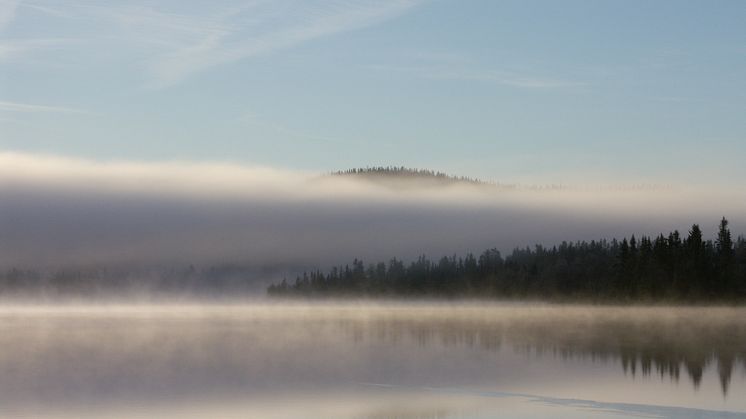
Pressmeddelande -
Global Forests are Overlooked as Water Suppliers, Study Shows
The forests of the world supply a significant amount of moisture that creates rain. A new study published in Global Change Biology reveals how this important contribution of forests to the hydrologic cycle is often overlooked in water resource policy, such as that of the EU.
The study, by David Ellison, Martyn Futter and Kevin Bishop at the Swedish University of Agricultural Sciences (SLU), shows that reducing forest area reduces regional and continental rainfall. This needs to be recognized to obtain a fair picture of the forest role in the hydrologic cycle.
“Are forests good for water? An apparently simple question divides scientists in two camps – those who see trees as demanding water and those who see trees as supplying water,” said David Ellison who works in the Future Forests research program studying resource management. “This paper demonstrates that the difference between these two camps has to do with the spatial scale being considered.”
From a local perspective, a tree is a consumer of water. But on a broader regional scale, forests supply the atmosphere with moisture that will become rainfall. Some dry areas depend almost entirely on rain that comes from forest-covered areas via the atmosphere.
The view of forests as a consumer of water influences the EU Water Framework Directive (WFD) which includes strategies for water pricing, but fails to consider the contribution of forests to the water cycle. The same goes for the increasingly popular “Water Footprint”, a tool developed to communicate the water usage of a product or process.
Deforestation and land conversion from forest to agriculture or urbanization will have a negative effect on regional precipitation. On a small scale and in the short run it may not be noticeable. But if the loss of forests continues, there is a risk that both rainfall and water supply will decrease in many places.
Afforestation and reforestation on the other hand could be used as an invaluable climate change adaptation tool to bring increasing moisture to regions where rainfall is on the decline.
David Ellison argues for the need to change the basic view about the importance of forests in the hydrologic cycle in a new article in the influential journal Global Change Biology.
“Forests, whose contribution to the water cycle is crucial for human survival and future well being, should be regarded as a global public good, to be preserved and used for the benefit of all.”
------------------------------------
This paper is published in Global Change Biology. To receive a copy, please contact Annika Mossing at Future Forests, SLU, +46 90 7868221, +46 727 103944
Link to Article: http://onlinelibrary.wiley.com/doi/10.1111/j.1365-2486.2011.02589.x/full
Contact the Authors: David Ellison, ellisondl@gmail.com, cell phone 0036-30-929-5246
Ämnen
Kategorier
Regioner
The Future Forests research programme produces research on which to base strategies for the sustainable use of boreal forests. Future Forests is a Mistra programme, hosted by Swedish University of Agricultural Sciences (SLU). It is a joint initiative between SLU, Umeå University and the Forestry Reserach Institute of Sweden.


